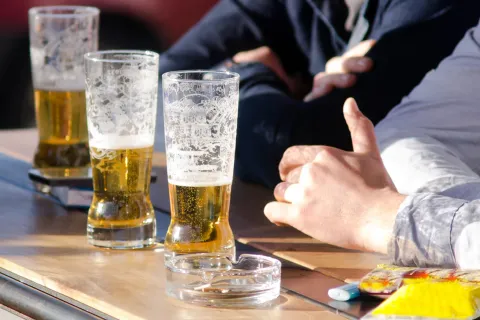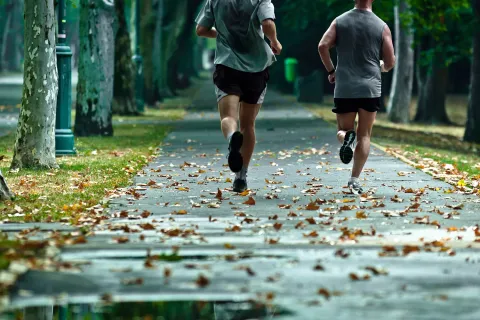Health
News
Alcohol-Free wine could be elixir of youth

by Christine Humphreys
Published: July 25, 2023 Last updated: August 29, 2023

Drinking alcohol-free wine could hold the secret of youthful skin.
Scientists have probed the impact of de-alcoholised wine on the skin and found it can rejuvenate the complexion and restore the bloom of youth.
Behind the Scenes of the Skin-Reviving Study
Researchers in the USA carried out a study among women aged between 40 and 67. Some were given de-alcoholised wine and others issued with a different liquid and were each asked to drink two glasses a day.
Participants had their skin analysed at the start of the experiment and again after six weeks to measure dermatological conditions such as inflammation and oxidative stress.
At the end of the six weeks, scientists found that, after drinking the non-alcoholic wine, the women’s skin elasticity significantly improved.
They also discovered that consuming the wine helped to increase skin hydration and the decrease in water loss strengthened the skin’s surface strengthened the protective barrier against damage.
Scientists chose to conduct the study using the traditionally sweet Muscadine wine which is renowned for its high anti-oxidant qualities.
The research was carried out at the University of Florida and led by Dr Lindsey Christman, a graduate research assistant in Food Science and Human Nutrition and results were presented to the annual conference of the American Society of Nutrition.
Her team’s findings have been widely reported in the medical and scientific media.
How Red Wine Polyphenols Fight Sun Damage
Dr Christman told reporters the polyphenols – found in high concentrations in red wine – appear to protect the skin against sun damage which she says robs the skin of elasticity and increases the sagging associated with ageing.
Medicinal benefits have been attributed to wine – especially red wine – for centuries.
Previous studies have suggested moderate wine consumption can protect against heart disease, chronic inflammation, cognitive decline and gut health.
However, Dr Christman says her study does not indicate that grape juice or the alcoholic version of the drink provide the same beauty benefits.
The Road Ahead: More Research Needed
“These results cannot be extended to wine with alcohol, as alcohol adds a new variable and may alter the results,” she said.
“In addition, the de-alcoholisation process may have altered the overall chemical make-up of the wine. For this reason, the results can also not be extrapolated to juice either.”
She suggested the need for further research to establish the impact of these drinks on skin health.
De-alcoholised wine is known to be a good source of the powerful antioxidant resveratrol which previous research has shown to reduce the impact of free radicals which are linked to chronic disease and tissue damage.

About The Author
Christine Humphreys
Chris Humphreys is the co-founder of The Alcohol-Free Shop and AlcoholFree.com. She was a journalist for more years than she cares to remember. Ex-wife of an alcoholic, enthusiastic amateur musician and a passionate dog lover.
More News

Bank’s booze spending cut call branded ‘irresponsible’
January 16, 2025

‘Catastrophic’ death toll ‘tip of iceberg’
December 19, 2024

UK Government ‘allowing’ booze to kill - MP
May 07, 2024

Healthy habits override genetics to extend lifespan
May 07, 2024

English kids among world’s biggest child boozers
April 26, 2024

Minimum alcohol price rise approved in Scotland
April 18, 2024

Almost three-million years lost to booze in six years
March 19, 2024

The doctor fighting to save lives by removing the stigma of 'alcoholism'
March 11, 2024